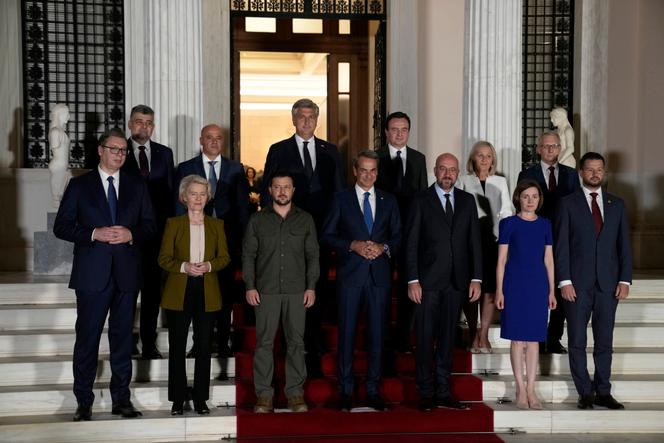


It's an important deadline: At their meeting in Brussels at the end of December, the heads of state and government of the EU-27 will have to decide whether to open accession negotiations with Ukraine and Moldova. At the same time, they will have to make a gesture toward the countries of the Western Balkans, who have been waiting in the antechamber of the European Union for years and would hate to see Kyiv and Chisinau pass them by.
Today, the 27 member states all agree that enlargement is inevitable, given the geopolitical context and the war in Ukraine on the EU's borders. But when it comes to the question of how to proceed with this project, which will radically change the economic, social and political face of the union, the answers vary widely from one capital to the next.
Against this backdrop, France and Germany commissioned 12 independent political scientists to examine the subject. On Tuesday, September 19, the two rapporteurs, Olivier Costa and Daniela Schwarzer, were due to present their conclusions to the European affairs ministers, in a report designed to explain to the EU-27 how to "Navigate the high seas." On this occasion, the French junior minister for Europe, Laurence Boone, and her German counterpart, Anna Lührmann, were to reiterate that their work is not binding on Paris and Berlin.
The EU is not ready to welcome new members, either institutionally or politically, according to the "group of 12," as the experts call themselves. The report therefore advocates reforming the EU before or at the same time as enlargement, in line, from this point of view, with what Paris and Berlin are advocating. "The risk is that we may repeat our previous error of enlargement without integration. I know all too well that in a Europe with 27 countries, it is quite complicated to move forward on essential issues. And with 32 or 35 countries, it will not be any easier, to say the least," Emmanuel Macron explained to French ambassadors on August 28.
Not everyone in the EU shares this view. Indeed, another report on enlargement, written by Baltic, Polish, Nordic and Croatian political scientists and presented to European affairs ministers at a dinner hosted by Lithuania on the evening of September 18, recommends that the arrival of new member states should not be conditional on institutional reforms. These countries, traditionally more in favor of an enlarged Europe than Paris and Berlin, fear that the French-German dialectic could be a pretext for burying enlargement once again.
You have 49.75% of this article left to read. The rest is for subscribers only.
